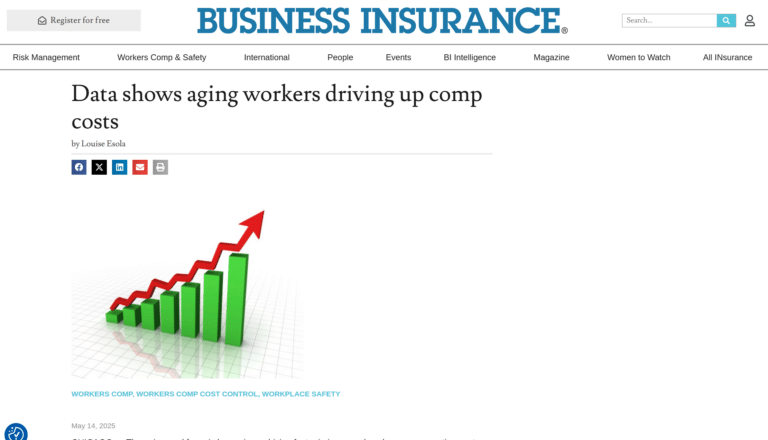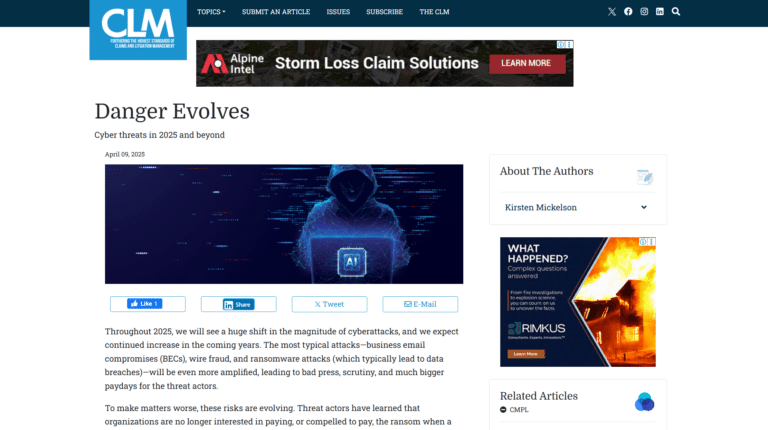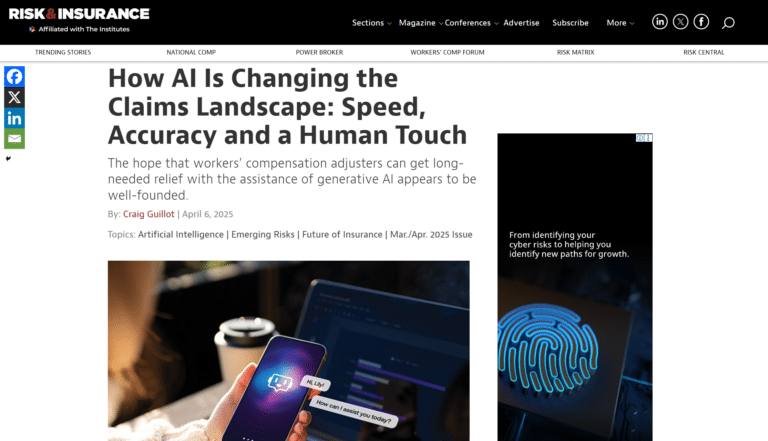For the insurance industry, the financial implications of the last 12 – 18 months have been a litmus test: from the HIH scheme collapse, to those insurers and third-party administrators (TPAs) better resourced to ride the waves after making sound investment in predictions that ultimately paid off. This year more than ever we’re seeing the importance of having the right resources, systems, and infrastructure to support rapid ramp up (and down) to meet market needs.
But thinking beyond our industry and our own back pocket, this is a year for going beyond what’s expected to support customers in times of crisis. Even where the resources (or grounds) don’t exist to provide financial support, adding a human element to a well-managed customer experience journey will be the predicator for those companies who will be well supported in return by their customers once the dust settles.
During a crisis event, a claimant is likely experiencing a peak moment of stress, so proactive communication and support is very important. Those moments are why insurance exists – so it’s up to us to meet our end of the bargain, meeting our insurance promises and providing the support people need.
But how do you build competency for empathy as well as technical expertise to meet the people/profit challenge? Look within your organization – even if doing so shows you the right answer exists outside your own walls.
According to Gallagher Bassett Executive Vice President Jon Winsbury, having the right people on the frontline can make all the difference at a time when the world is burning.
“No two catastrophes or disasters are the same, and, similarly, every individual has a unique personality, motivations and strengths,” said Winsbury.
“Under normal circumstances, one of the objectives for a leader is to challenge your staff to develop in areas outside of their natural strengths; challenge your extroverts to be more methodical and your introverts to step outside their comfort zone.”
“But what I’ve found is that in times of crisis, where demands increase and the pressure is on, people inevitably revert to their inherent disposition, demonstrating the behaviors that come most naturally to them.”
Winsbury explains that paying close attention to the right person for the role goes beyond technical expertise.
“It’s also vital to understand the social, emotional and cultural strengths in your team. In times of crisis, vulnerabilities are exposed and can be improved, frameworks are tested and interrogated, and people have an opportunity to rise to a challenge.”
As one of the world’s largest TPAs, Gallagher Bassett optimizes supply chains and partners with insurers to enhance their brand, values, and systems, improving customer service and driving cost and operational efficiencies. We’ve managed claims following some of the largest catastrophic events in recent times, including managing claims for every major catastrophic event in Australia since 1998.
With proven capability and systems to rapidly recruit, train, and deploy resources in just 20 days, we can give you the flexibility to rapidly adapt in a crisis. Our onboarding process enables business cost savings compared to new full-time recruitment activities, decreasing overheads and minimizing associated recruitment costs.
But beyond the practical, it comes down to our people.
“When we recruit into our business, we conduct testing to identify a candidate’s strengths logically, technically and emotionally,” said Winsbury.
“This provides a baseline upon which our talent development team can investigate further during the interview process to ensure that the candidate has strengths that will be complementary to their team to produce a diverse, well-rounded cohort.”
“Our proven expertise and structured methodologies allow us to implement a quick strategic response to any catastrophic event. These strategies focus on identifying and limiting financial exposure and legal liability, preventing or limiting brand erosion and complementing business continuity procedures.”
Having the right people interfacing with your customers is critical at any time, but even more so following a traumatic event. Opinions and perceptions are formed by actions taken, so it’s important to have the right representatives working on your behalf at a time when customers need you most.
Read about the importance of transitioning from post-event costs to prevention and the benefits of doing so.
For more great insights, whitepapers and case studies, visit our Insurance Carrier Resource Centre.
To find out more about how Gallagher Bassett partners with insurers to deliver custom claims solutions that support your business contact us today.






